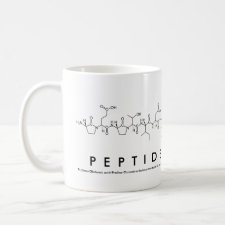
Authors: Takata A, Usui K, Matsui J
Article Title: ATP-binding peptide-hydrogel composite synthesized by molecular imprinting on beads.
Publication date: 2015
Journal: Molecular Imprinting
Volume: 3
Issue: (1)
Page numbers: 65-70.
DOI: 10.1515/molim-2015-0008
Alternative URL: http://www.degruyter.com/view/j/molim.2015.3.issue-1/molim-2015-0008/molim-2015-0008.xml?format=INT
Abstract: Molecular imprinting has been recognized as a useful technique to produce synthetic mimics of functional proteins, such as antibodies and enzymes. However, only a few studies have examined peptides as starting materials for synthesizing molecularly imprinted polymers in spite of the expectation that peptides would be suitable materials for realizing water-compatibility and protein-like functions. In this study, molecular imprinting was performed using a vinyl-end-capped on-beads-peptide as functional monomer to produce an on-beads-peptide hydrogel composite selective for ATP; the on-beads peptide, of which sequence was designed to possess both an adenine-recognition site and phosphate recognition site, was co-polymerized with NIPAM and BIS in the presence of ATP as a template species. The resultant ATP-imprinted composite showed 14-times higher affinity and an enhanced selectivity towards ATP, suggesting that the peptide conformation, i.e. a mutual orientation of the two binding sites, was pre-organized and immobilized in a manner where the ATP binding is more favored.
Template and target information: ATP, adenosine triphosphate
Author keywords: peptide, hydrogel, ATP



Join the Society for Molecular Imprinting

New items RSS feed
Sign-up for e-mail updates:
Choose between receiving an occasional newsletter or more frequent e-mail alerts.
Click here to go to the sign-up page.
Is your name elemental or peptidic? Enter your name and find out by clicking either of the buttons below!
Other products you may like:
 MIPdatabase
MIPdatabase









